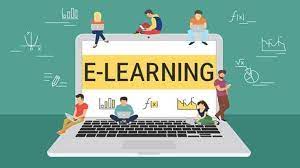In recent years, Pakistan has witnessed a significant shift towards e-learning, driven by advancements in technology and a growing recognition of the need for accessible education. This transformation is reshaping the country’s educational landscape, making learning more flexible and inclusive.
The Rise of E-Learning in Pakistan
Several factors have contributed to the emergence of e-learning in Pakistan:
- Internet Penetration and Smartphone Usage:
The increasing availability of the internet and the widespread use of smartphones have made online learning more accessible to a broader population. - Demand for Digital Skills:
As the global job market evolves, there is a growing need for digital competencies, prompting individuals to seek online courses to enhance their skills. - Challenges in Traditional Education:
Issues such as limited access to quality education in remote areas, overcrowded classrooms, and outdated curricula have highlighted the need for alternative learning solutions. - Government and Private Sector Support:
Both sectors are increasingly investing in e-learning platforms and initiatives to promote education across the country.
Key E-Learning Initiatives in Pakistan
The Presidential Initiative for Artificial Intelligence and Computing (PIAIC)
Launched by President Dr. Arif Alvi, PIAIC piaic.org aims to promote education, research, and business opportunities in Artificial Intelligence, Blockchain, Internet of Things, and Cloud Native Computing. The program offers both distance and on-site learning, allowing students nationwide to enroll online. However, students are required to attend on-site sessions for examinations. PIAIC has set an ambitious target to enroll 100,000 students within a year, starting with successful launches in major cities like Karachi, Islamabad, and Faisalabad, with plans to expand to Lahore, Quetta, and Peshawar.
DigiSkills.pk
An initiative of the Government of Pakistan, DigiSkills.pk is an online training program designed to equip individuals with digital skills to thrive in the freelance market. Courses offered include Freelancing, Digital Marketing, E-Commerce Management, and more. The program aims to train one million people to strengthen the country’s digital economy.
Virtual University of Pakistan (VU)
Established by the government, VU is Pakistan’s first university based entirely on modern Information and Communication Technologies. It offers undergraduate, postgraduate, and doctoral programs through online lectures and resources, making quality education accessible to students across the country, including those in remote areas.
Allama Iqbal Open University (AIOU) Digitalization Efforts
AIOU, traditionally known for its distance learning programs, is transitioning to digital platforms to enhance its educational offerings. The university is focusing on providing online resources and virtual classrooms to cater to the needs of its diverse student body, particularly those from marginalized communities.
Private Sector Contributions
Several private organizations are contributing to the e-learning landscape in Pakistan:
- Dot and Line: An e-learning platform offering comprehensive educational resources and interactive learning experiences tailored to Pakistani students.
- Sabaq Foundation: Provides free online video lessons for K-12 students, focusing on subjects like Mathematics and Science.
- Knowledge Platform: Offers digital learning solutions for schools, including interactive content and assessment tools.
- Noon Academy: A social learning platform that connects students with teachers and peers for live interactive classes.
Challenges Facing E-Learning in Pakistan
Despite the progress, several challenges persist:
- Internet and Infrastructure Limitations: Many rural and underserved areas still lack reliable internet connectivity, hindering access to online education.
- Digital Literacy Gap: A significant portion of the population lacks the necessary skills to effectively engage with digital platforms.
- Recognition of Online Degrees and Certifications: There is a need for policies that recognize and validate online qualifications to ensure they are valued in the job market.
- Engagement and Quality Assurance: Maintaining student motivation and ensuring the quality of online courses remain significant challenges.
The Future of E-Learning in Pakistan
Looking ahead, the future of e-learning in Pakistan holds promising developments:
- Expansion of AI and Emerging Technology Programs: Initiatives like PIAIC are expected to grow, offering more specialized courses in cutting-edge fields.
- Hybrid Learning Models: Combining online and traditional classroom experiences can provide a more flexible and comprehensive education.
- Policy Recommendations: Increased government investment in digital infrastructure and the development of supportive policies can enhance the effectiveness of e-learning.
- Potential for Regional Leadership: With continued focus, Pakistan has the opportunity to become a regional hub for digital learning, offering resources and expertise to neighboring countries.
Pakistan’s journey towards embracing e-learning reflects a commitment to making education more accessible and relevant in the digital age. Through collaborative efforts between the government, private sector, and educational institutions, the country is poised to overcome challenges and harness the full potential of digital education. As these initiatives continue to evolve, they hold the promise of empowering individuals and transforming the nation’s educational landscape.







